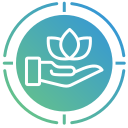Community, Tracking, and Motivation
Pair with a friend for weekly check-ins or join a local meditation circle. Shared stories normalize setbacks and renew motivation, especially during demanding seasons when immunity needs steadiness.
Community, Tracking, and Motivation
Note minutes meditated, sleep quality, mood, and colds or flare-ups. Patterns emerge quickly, helping you adjust timing or techniques to better match your body’s real-world needs and rhythms.



